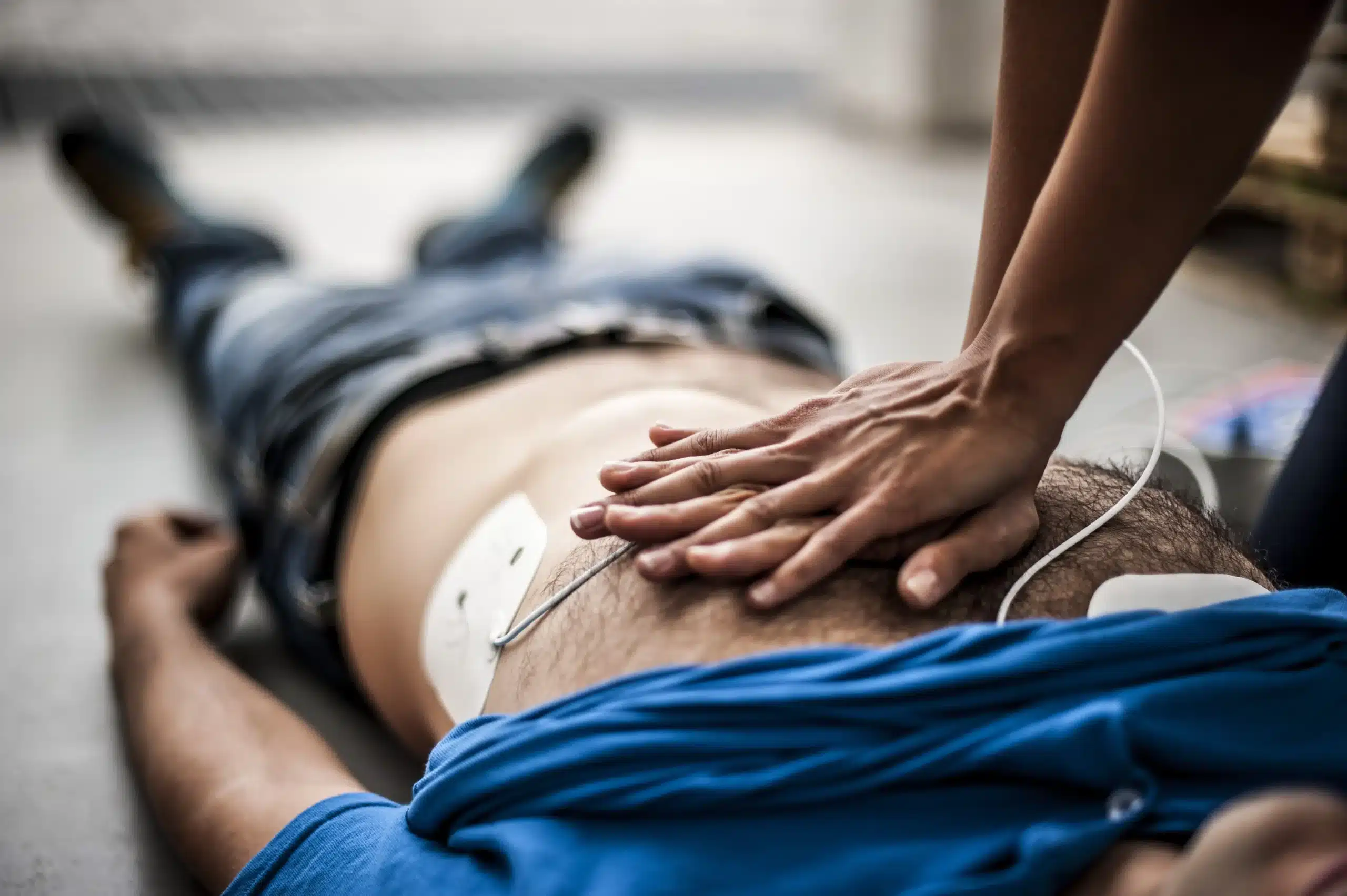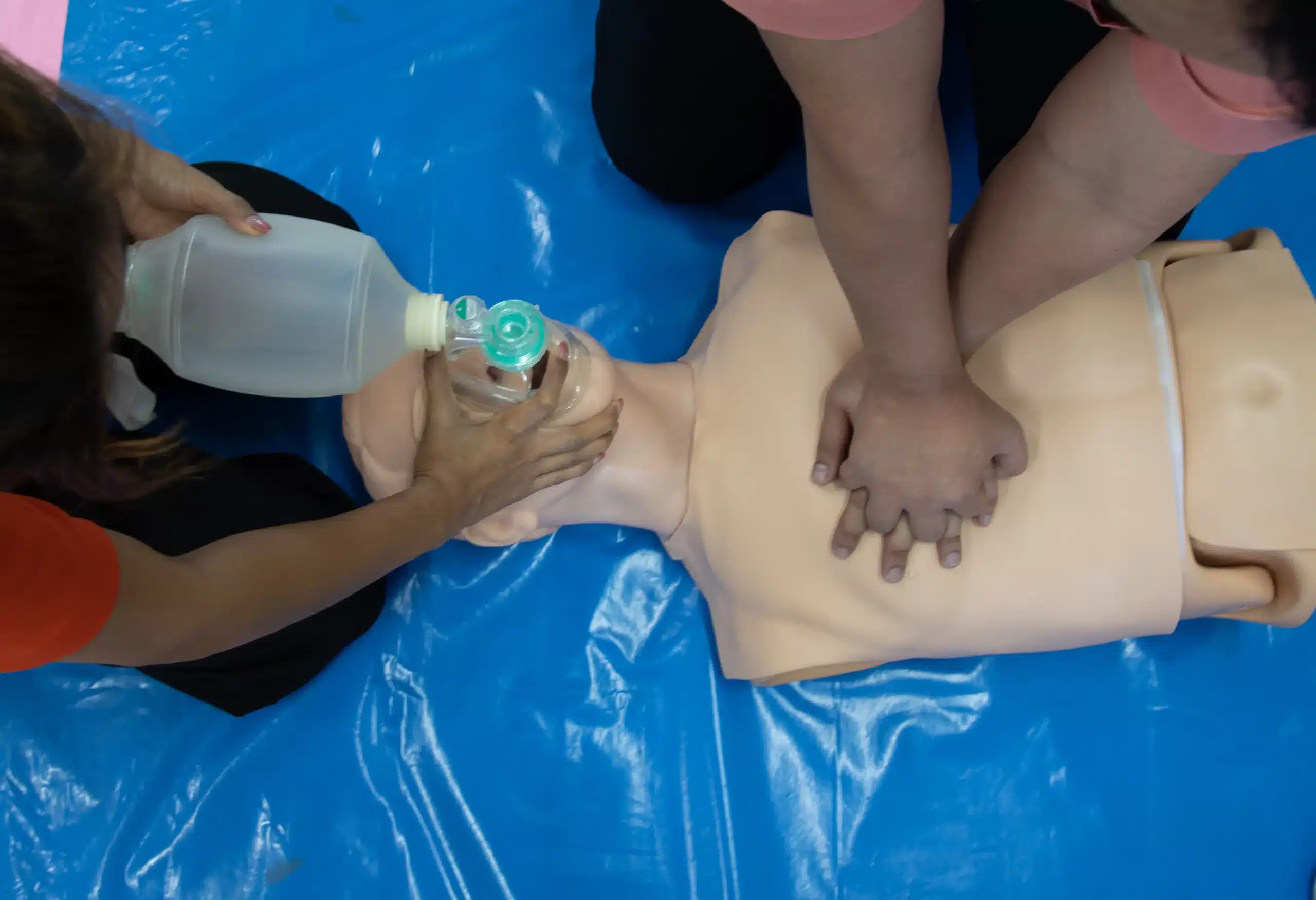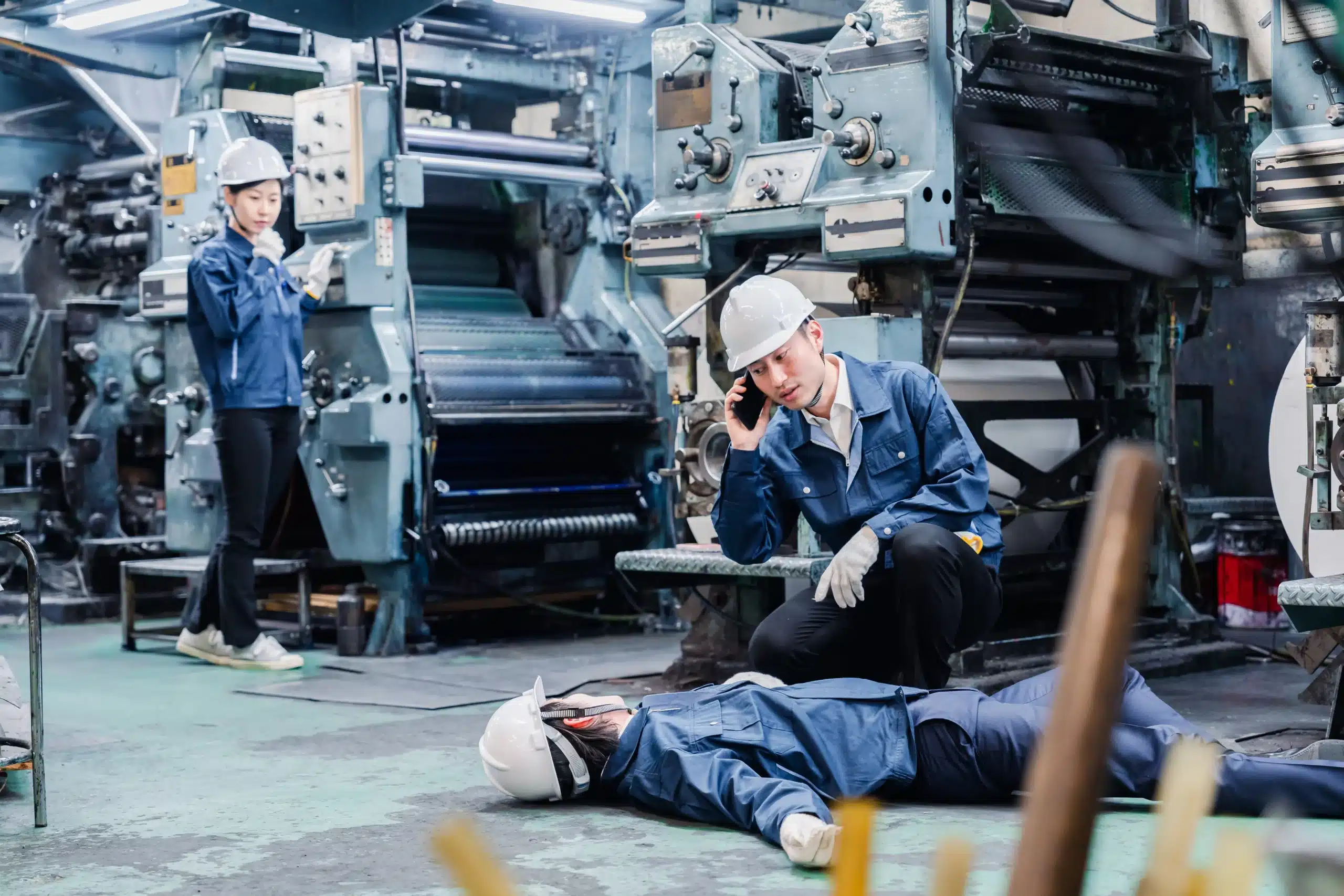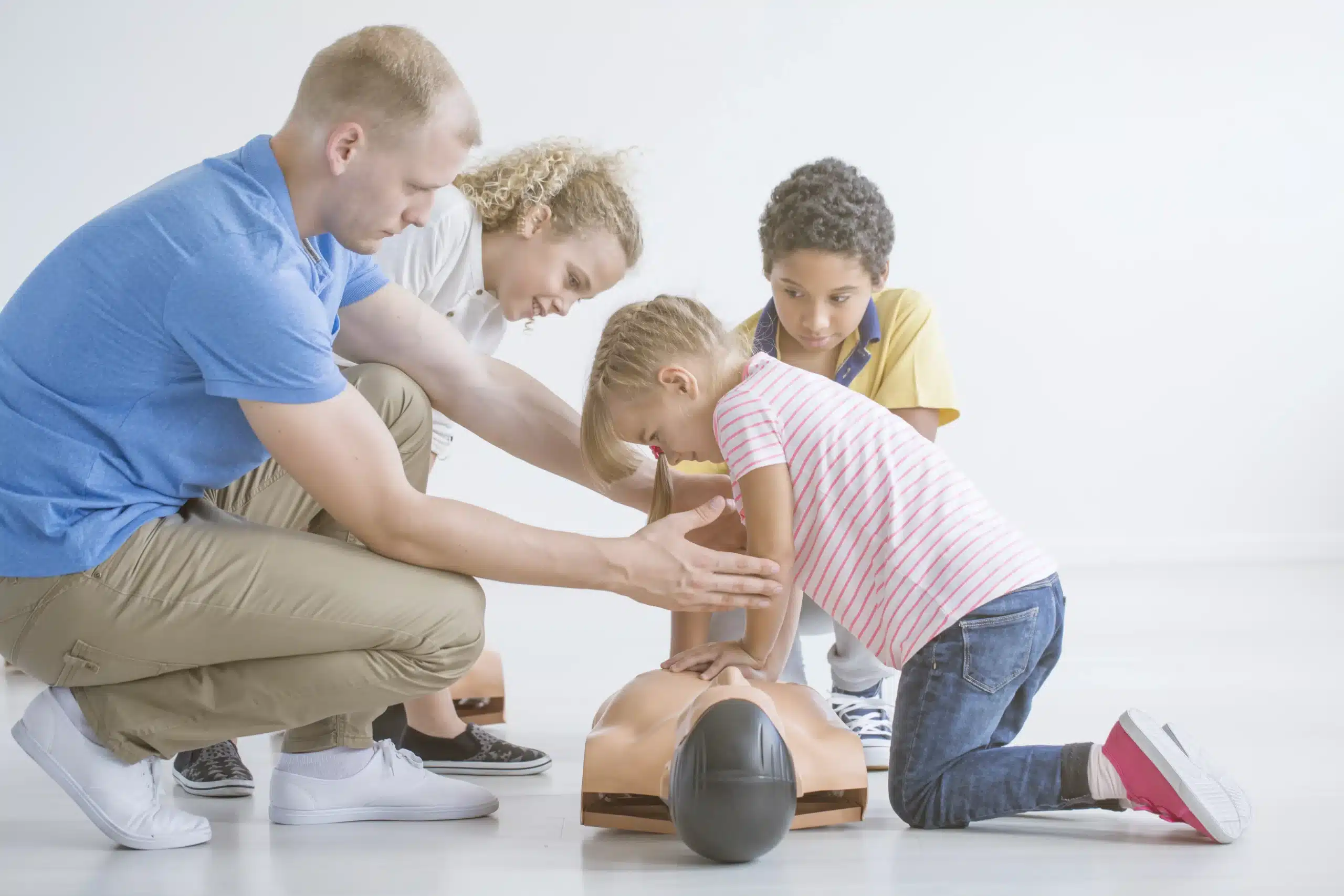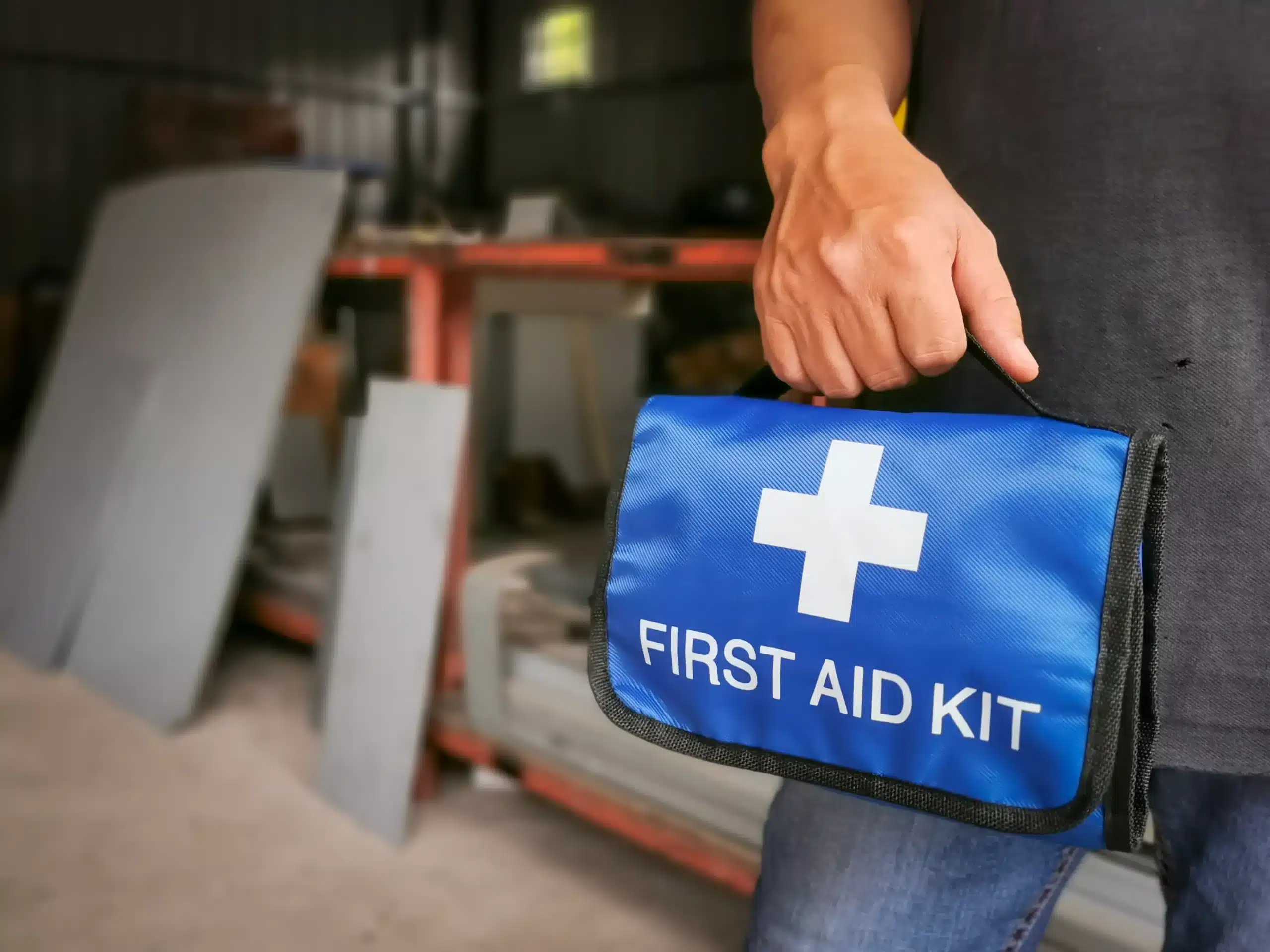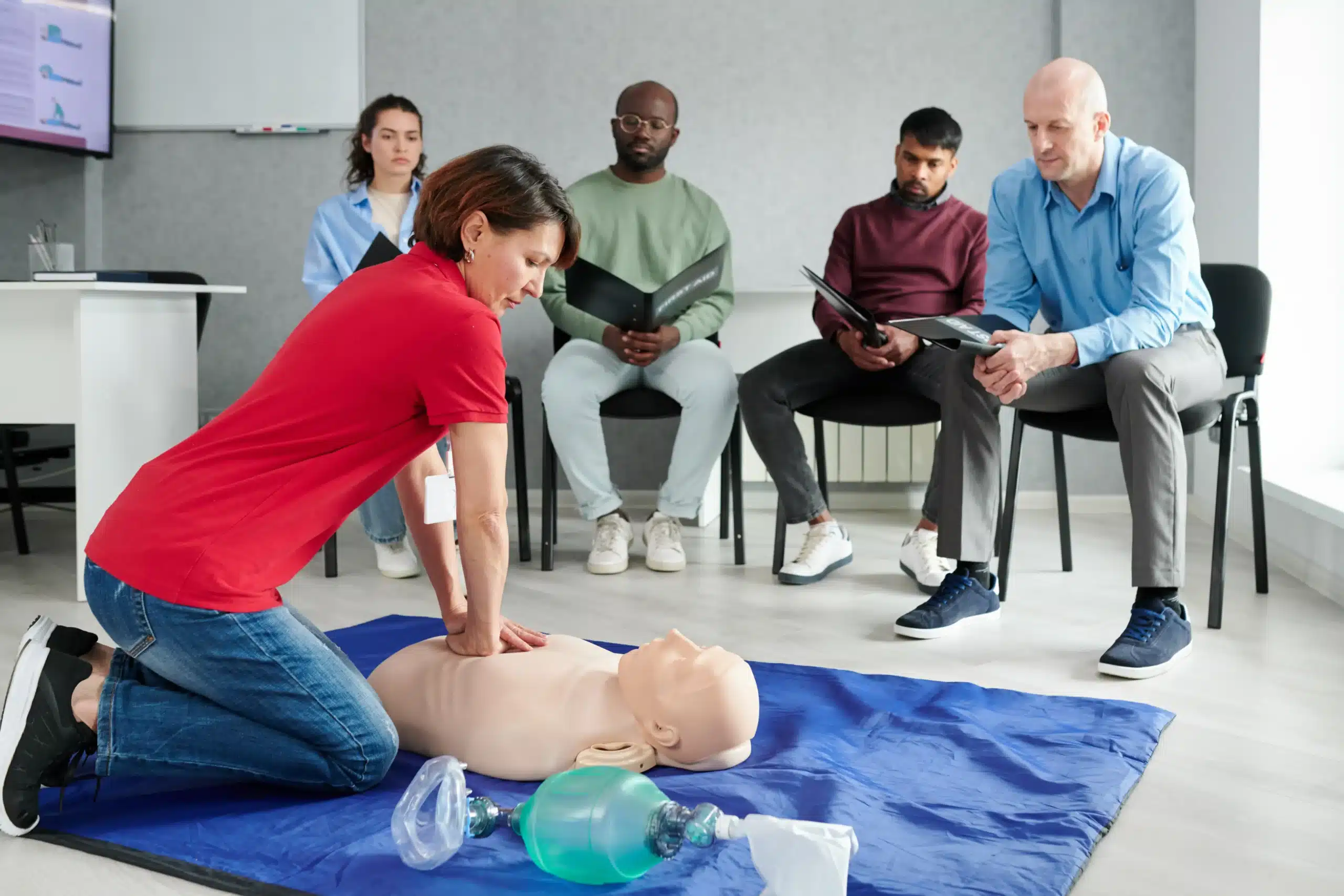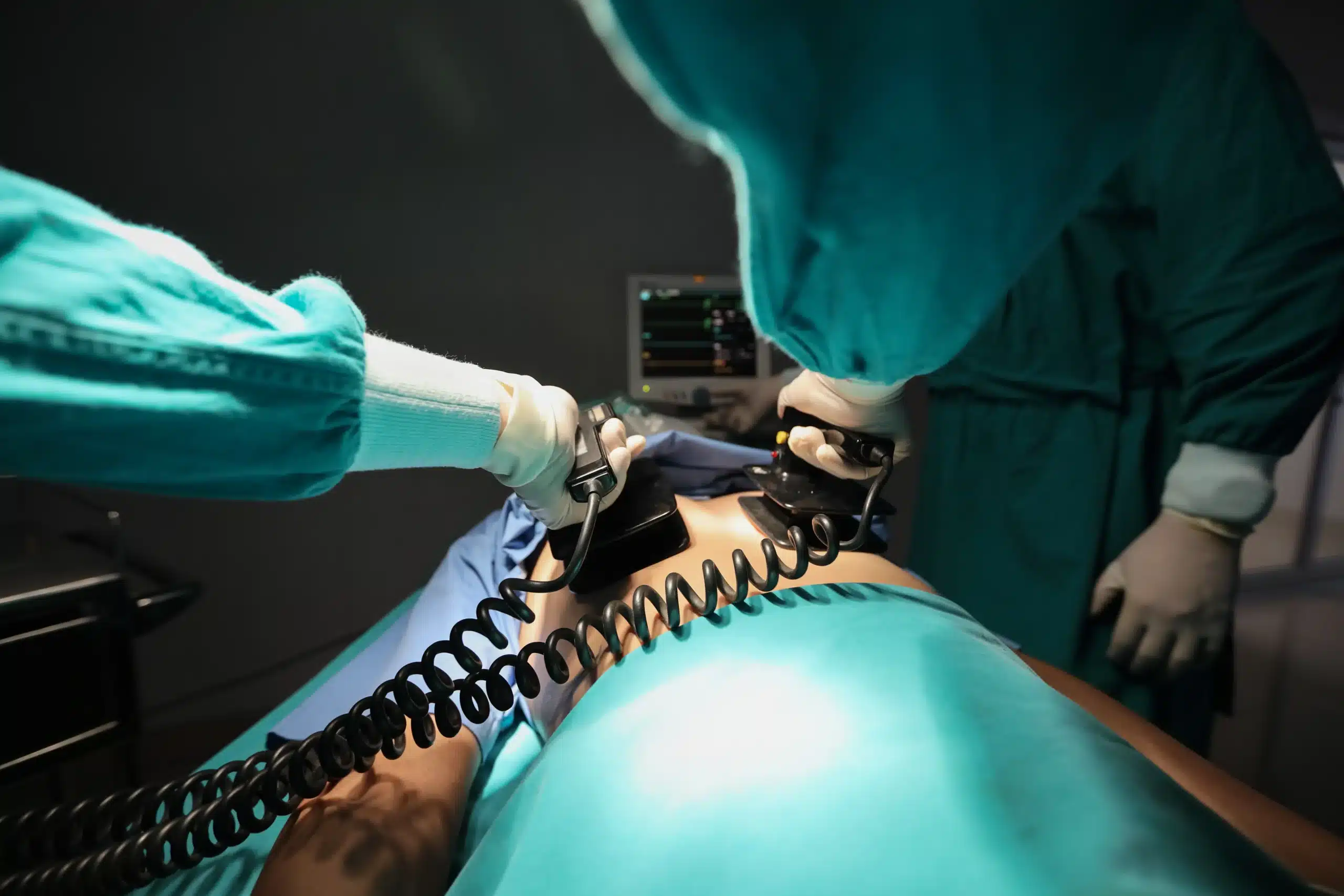The demands on healthcare professionals in Sunnyvale are high, and maintaining essential certifications like BLS, ACLS, and PALS can feel like another task on an already overflowing to-do list. But what if staying certified could be easier and more effective? RQI, or Resuscitation Quality Improvement, offers a new approach to CPR training. Designed for busy professionals, RQI in Sunnyvale provides short, frequent practice sessions that fit seamlessly into your schedule. This article explores how RQI can transform your approach to CPR training, improve your skills, and ultimately enhance patient care.
Key Takeaways
- RQI provides a practical approach to CPR training: Short, frequent sessions combined with real-time feedback make it easier to master and retain life-saving skills, fitting seamlessly into busy schedules.
- High-quality CPR is directly linked to better patient outcomes: RQI’s focus on consistent, effective technique empowers healthcare providers to deliver the best possible care in emergencies.
- Finding the right RQI provider simplifies the learning process: Look for a provider offering flexible scheduling, competitive pricing, and a supportive learning environment to maximize your training experience.
What is RQI and Why Does It Matter in Sunnyvale?
RQI (Resuscitation Quality Improvement) is a program developed by the American Heart Association (AHA) that offers healthcare professionals a streamlined and efficient way to earn their BLS, ACLS, and PALS certifications. For busy professionals in Sunnyvale, this innovative approach to CPR training provides a practical way to stay up-to-date with the latest life-saving techniques. Sunnyvale CPR Classes offers RQI training to help healthcare providers maintain their skills and confidence in emergency situations.
RQI vs. Traditional CPR Training
Traditional CPR training often involves infrequent, lengthy classes. This format can make it challenging for healthcare workers to retain information and maintain peak performance. RQI, on the other hand, focuses on short, frequent practice sessions combined with immediate feedback. This approach helps reinforce skills and build confidence over time, leading to better retention and improved performance in real-world emergencies. If you’re looking for a more flexible and effective way to maintain your CPR skills, consider RQI certification.
The Importance of Quality CPR in Healthcare
High-quality CPR is crucial for improving patient outcomes. Studies show that healthcare institutions using RQI experience a significant increase in survival rates from cardiac arrest. RQI emphasizes consistent, high-quality compressions and proper technique, which are essential for maximizing the chances of survival. For healthcare providers in Sunnyvale, maintaining these skills is paramount, and RQI provides the tools and resources to achieve and maintain proficiency. Learn more about the impact of high-quality CPR and its role in saving lives.
Key Components of RQI Programs in Sunnyvale
RQI programs blend online learning with hands-on practice, creating a flexible and effective approach to CPR skill mastery. Here’s a closer look at the key parts of RQI training:
Online Learning Modules
The American Heart Association RQI (Resuscitation Quality Improvement) program offers a modern and efficient path to official AHA certification for healthcare professionals in Sunnyvale. These self-directed modules cover essential CPR knowledge and allow you to learn at your own pace. You can review materials as needed and test your understanding before moving on to the practical skills assessment.
Hands-On Skills Assessments with VAMs
RQI programs use voice-assisted manikins (VAMs) to evaluate your CPR technique. These sophisticated manikins provide real-time feedback on your compressions and ventilations, ensuring you meet the AHA’s standards for high-quality CPR. This hands-on experience builds confidence and reinforces proper technique.
Real-Time Feedback and Performance Tracking
One of the most valuable aspects of RQI is the immediate feedback you receive during skills assessments. The VAMs track key metrics like compression rate and depth, chest recoil, and hand placement. This real-time data helps you identify areas for improvement and refine your skills under the guidance of a certified instructor. RQI also tracks your performance over time, allowing you to monitor your progress and maintain your CPR proficiency.
Benefits of RQI for Healthcare Professionals
Master CPR Skills with RQI’s Approach
The Resuscitation Quality Improvement (RQI) program, developed by the American Heart Association (AHA), focuses on helping healthcare professionals master high-quality CPR skills. Unlike traditional CPR training, RQI uses a “little and often” approach. Short, frequent training sessions, combined with real-time feedback, reinforce skills and build confidence, leading to better skill retention and improved patient outcomes. The emphasis on mastery, rather than just basic competency, makes RQI a valuable tool. Learn more about the program on the American Heart Association’s RQI page.
Flexible Learning for Busy Professionals
RQI understands the demands of a healthcare career. The program offers a flexible blend of online learning modules and short, in-person skills sessions. This adaptable format allows you to fit training into your busy schedule. You can complete online modules at your own pace, and the brief, hands-on sessions confirm your skills and provide personalized coaching. This flexible approach makes maintaining your CPR certification manageable, even with a demanding workload. Consider our convenient and affordable RQI classes in Sunnyvale.
Overcome Time Constraints and Improve Skill Retention
Traditional CPR training often involves lengthy, infrequent sessions, which can lead to skill decay. RQI addresses this with more frequent, shorter training intervals proven to improve skill retention, especially for crucial skills like BLS and ALS. RQI’s focus on psychomotor skills, such as compression rate and depth, ensures you’re truly understanding and performing quality CPR. This targeted approach, combined with flexible scheduling, helps you maintain your skills and confidently respond to emergencies. Our low price guarantee makes staying current with your RQI certification even easier.
RQI Providers in Sunnyvale
Finding the right RQI provider is crucial for a smooth and effective learning experience. Here’s a breakdown of providers in Sunnyvale and what to consider when making your choice.
Safety Training Seminars
Safety Training Seminars, a woman-owned American Heart Association Training Center, offers high-quality BLS, ACLS, PALS, CPR, and First Aid courses in Sunnyvale. They offer the RQI program, making it convenient for local healthcare professionals to maintain their certifications. With classes offered daily, they make it easy to fit training into your busy schedule. Learn more about their RQI classes and their low price guarantee for Santa Clara County.
Other AHA-Certified Organizations
While Safety Training Seminars is a great local option, exploring other AHA-certified training centers is always wise. The American Heart Association website offers a search tool to locate certified providers near you. This allows you to compare options and find the best fit. You can also check with local hospitals and medical facilities, as they often provide in-house RQI training and may have open enrollment.
Choose the Right Provider
When selecting an RQI provider, consider factors like location, schedule flexibility, class size, and cost. Smaller classes often provide more personalized instruction. If you’re coordinating training for a team, look for providers offering group discounts. Finally, check reviews and testimonials to understand the quality of instruction and the overall experience. Choosing the right provider can significantly impact your learning and ensure you maximize your RQI training.
Get RQI Certified
So, you’re ready to get RQI certified? Great! This section breaks down everything from requirements to maintaining your certification. RQI, or Resuscitation Quality Improvement, is the gold standard, especially for healthcare professionals. It’s a modern and efficient way to learn and maintain these crucial skills. At Safety Training Seminars, we offer the American Heart Association RQI program, the fastest and most convenient way to get your BLS, ACLS, and PALS certifications in Sunnyvale.
Requirements and Assessments
The RQI program focuses on high-quality CPR skills. You’ll learn proper techniques for compressions, recoil, hand placement, and ventilation volume. This involves hands-on training with both adult and infant manikins. RQI uses innovative simulation stations to assess your skills and provide feedback. These assessments ensure you’re providing the best possible care in emergencies.
Certification Validity and Renewal
Traditional CPR certification requires periodic renewal courses. RQI emphasizes low-dose, high-frequency training. You’ll regularly practice your skills at simulation stations and complete quarterly cognitive assessments. This ongoing practice helps you maintain proficiency and build confidence. Your RQI eCredential verifies your competency and is refreshed each time you complete a skills session and cognitive assessment. This ensures your skills are always current with American Heart Association guidelines. More frequent training is highly recommended, especially for providers likely to encounter cardiac arrest.
AHA eCredentials
Your RQI certification comes as an AHA eCredential, a digital verification of your CPR skills. This eCredential is easily accessible and demonstrates your commitment to maintaining high-quality CPR skills. It’s updated each quarter as you complete your skills assessments and cognitive activities, providing continuous proof of your proficiency. RQI programs, backed by the American Heart Association, use the latest scientific research to help providers improve both their competence and confidence in delivering life-saving care.
Cost and Value of RQI Training
When considering RQI training, understanding the costs and long-term value is essential. This breakdown helps you evaluate the investment and its potential return.
Individual Pricing
The American Heart Association’s RQI program offers a modern and efficient path to BLS, ACLS, and PALS certification. For individual healthcare providers in Sunnyvale, the cost of RQI training can vary based on the provider and the specific certifications you need. Safety Training Seminars offers competitive pricing, making it an accessible option for those seeking high-quality training. Contacting providers directly is the best way to get precise pricing information.
Group Discounts and Promotions
If you’re training a team or group of healthcare professionals, explore group discounts. Many RQI providers, including Safety Training Seminars, offer reduced rates for group training. This can significantly lower the per-person cost, making RQI training more affordable for organizations. Check with your chosen provider about their group discount policies and any ongoing promotions.
Long-Term Benefits and ROI
While there’s an upfront cost for RQI training, consider the long-term benefits. RQI equips healthcare professionals with crucial psychomotor skills, covering essential aspects of CPR like compression rate and depth, chest recoil, and ventilation volume. These improved skills can lead to better patient outcomes. For organizations, implementing RQI can also result in cost savings in several areas, including instructor fees, materials, and even staff turnover. By fostering continuous quality improvement in resuscitation practices, RQI contributes to a more skilled and confident team, ultimately benefiting both the healthcare providers and the patients they serve.
Prepare for RQI Training in Sunnyvale
What to Expect
The American Heart Association RQI (Resuscitation Quality Improvement) program is a popular way for medical and healthcare professionals in Sunnyvale to get their AHA BLS, ACLS, and PALS certifications. RQI training uses a blended learning approach, combining online modules with short, hands-on skills sessions. These sessions use realistic manikins and focus on essential skills like compressions and ventilations. Expect personalized feedback during your skills sessions to help you refine your technique and build confidence in high-quality CPR.
Tips for Success
RQI training is designed to be flexible and fit into busy schedules. Work through the online modules at your own pace and review the material before your in-person skills session. Visualizing the steps beforehand can help you feel more prepared and perform better during the assessment. Talking about RQI with your colleagues can also create a supportive learning environment. Consider advocating for RQI adoption in your workplace to foster a culture of continuous improvement in resuscitation quality.
Common RQI Misconceptions
One common misconception is that RQI is only for healthcare professionals. While RQI is widely used in hospitals, the skills are valuable for anyone. Another misconception is that RQI is difficult or time-consuming. The program is designed to be efficient, with short, focused sessions. Some people also worry about the technology involved. While RQI uses advanced manikins, the focus remains on mastering essential CPR skills. If you’re considering RQI training, Safety Training Seminars offers comprehensive training and can answer any questions.
Who Benefits from RQI in Sunnyvale?
RQI isn’t just for a select few—it’s designed to equip a wide range of individuals and organizations with the skills to respond confidently in medical emergencies. Let’s explore who can benefit from RQI training in Sunnyvale.
Healthcare Providers and Hospitals
For medical professionals in Sunnyvale, staying up-to-date with the latest resuscitation guidelines is crucial. The American Heart Association RQI program offers a streamlined path to maintain these essential certifications. RQI helps healthcare providers and hospitals ensure their staff are proficient in BLS, ACLS, and PALS, ultimately leading to improved patient outcomes. For those seeking these certifications, Safety Training Seminars offers a variety of RQI courses in Sunnyvale.
Emergency Medical Services
EMS personnel are on the front lines of medical emergencies, often needing to perform CPR in high-pressure situations. RQI training provides the consistent practice and real-time feedback necessary to master essential skills like chest compressions and ventilation. This focus on quality and precision equips first responders with the confidence to deliver effective CPR when it matters most.
Educational Institutions and Long-Term Care
RQI’s benefits extend beyond hospitals and emergency services. Schools, universities, and long-term care facilities also benefit from having staff trained in high-quality CPR. RQI programs can be integrated into existing training protocols, empowering educators, caregivers, and other staff members to respond effectively to medical emergencies. Having trained individuals on-site can significantly improve response times and potentially save lives.
The Future of CPR Training: RQI’s Impact
RQI (Resuscitation Quality Improvement) represents a significant shift in how healthcare professionals learn and maintain CPR skills. It’s not just another certification; it’s a continuous improvement program designed to elevate the quality of CPR and ultimately save more lives. This innovative approach blends technology, personalized learning, and frequent practice to ensure providers are always ready to deliver high-quality CPR.
Technological Advancements in CPR Education
RQI leverages sophisticated technology to provide real-time feedback during practice. Manikins equipped with sensors track essential metrics like compression rate and depth, hand placement, and even ventilation volume. This immediate feedback helps providers refine their technique and develop muscle memory for proper CPR performance. RQI training uses both adult and infant manikins, ensuring comprehensive skill development for various patients. Furthermore, RQI uses data analytics to monitor performance, allowing organizations to identify areas for improvement and tailor training accordingly. This data-driven approach ensures CPR training is targeted and effective.
Improve Patient Outcomes Through Better Training
The impact of RQI extends beyond the training room and directly to patient care. Studies show a strong correlation between high-quality CPR and improved survival rates from cardiac arrest. Healthcare institutions using RQI have reported a substantial increase in survival rates, demonstrating the real-world impact of this innovative program. By emphasizing consistent, high-quality CPR, RQI empowers healthcare providers to deliver the best possible care during critical moments. This focus on quality dramatically increases the chances of survival, making RQI a vital tool in improving patient outcomes.
RQI’s Role in Maintaining Healthcare Standards
RQI plays a crucial role in upholding and advancing healthcare standards. The RQI eCredential verifies that providers have the skills and knowledge to perform guideline-compliant CPR. Unlike traditional CPR training, which often involves lengthy courses followed by infrequent renewals, RQI emphasizes short, frequent practice sessions. This “low-dose, high-frequency” approach helps providers maintain competence and retain crucial skills. These regular refreshers address the limitations of traditional CPR training by ensuring that skills remain sharp and up-to-date. This commitment to ongoing improvement makes RQI a valuable asset in maintaining high standards of patient care.
Related Articles
- RQI Classes in Sunnyvale, CA – Sunnyvale CPR Classes
- Sunnyvale CPR Classes: Your Complete Guide – Sunnyvale CPR Classes
- CPR Certification in San Jose: A Practical Guide – Sunnyvale CPR Classes
- Why CPR is Crucial in Healthcare
- Online CPR Classes in Sunnyvale: A Complete Guide
Frequently Asked Questions
What exactly is RQI CPR training? RQI, or Resuscitation Quality Improvement, is a program created by the American Heart Association to help healthcare professionals keep their CPR skills sharp. It uses a little-and-often approach with short, frequent practice sessions and immediate feedback, unlike traditional CPR classes. This helps build confidence and improve long-term skill retention.
How is RQI different from traditional CPR training? Traditional CPR training typically involves longer, less frequent classes. RQI, on the other hand, uses short, regular practice sessions with high-tech manikins that give you instant feedback. This helps you master the skills and retain them better over time. It’s also much more flexible, fitting easily into busy schedules.
Why is high-quality CPR so important, especially in Sunnyvale? High-quality CPR significantly increases the chances of survival from cardiac arrest. In a place like Sunnyvale, with its bustling healthcare community, ensuring everyone is trained to the highest standard can make a real difference in positive patient outcomes.
Where can I find RQI training in Sunnyvale? Safety Training Seminars in Sunnyvale offers RQI training. They’re a woman-owned business and an official American Heart Association Training Center, so you know you’re getting quality instruction. They offer various courses, including BLS, ACLS, and PALS, and have a low-price guarantee for Santa Clara County. You can also check the American Heart Association website for other certified training centers near you.
How much does RQI training cost, and is it worth it? The cost of RQI training varies depending on the provider and the certifications you need. While there’s an initial investment, consider the long-term value. RQI helps you build confidence and truly master CPR skills, which can lead to better patient outcomes and potentially even cost savings for healthcare organizations. Many providers also offer group discounts, so be sure to ask about those.
